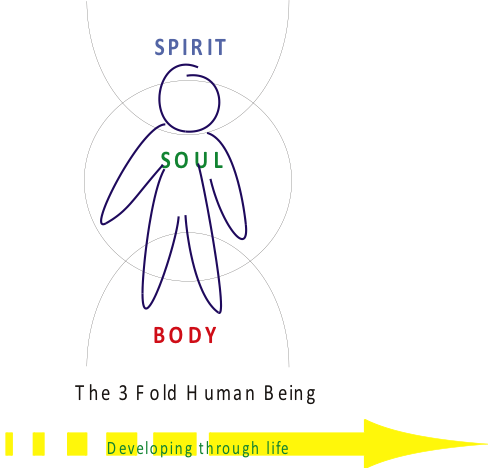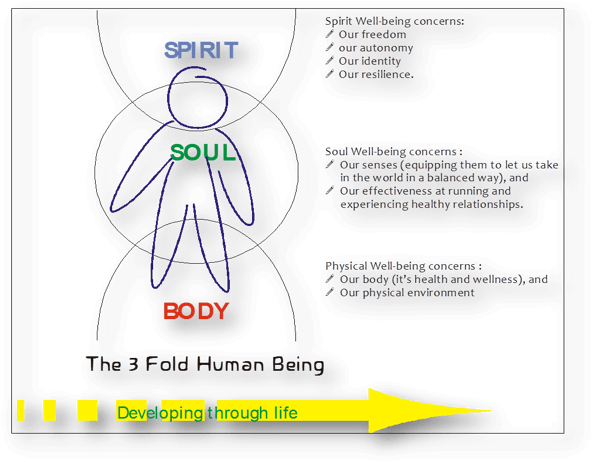
Our Special Character
Healthy Human Being – a basis for supporting the development of Intellectually Disabled adults.
Hōhepa Auckland is a community for adults who have intellectual disabilities. Through living, working and taking an active part in community life alongside support staff, the people we support grow to experience satisfying lives with as much independence as possible. For residents and staff, our Vision is that ‘every life is fully lived’.
Anthroposophy is at the core of what we do, and it is our unique point of difference in the disability sector. It encompasses the planet, the people and the spiritual essence of all things.
The principles of Rudolf Steiner’s work are the foundation of what happens within Hōhepa. It is this understanding of the human being that creates Hōhepa’s distinctive approach to working with people with disability. Therefore, curative education, social therapy, a rich cultural life and organic gardening combine here to make Hōhepa unique in the way it stimulates the development of body, soul and spirit.
Therefore, the foundation of our work is the understanding of the human as a being of Body, Soul and Spirit. In the diagram on the right, we can see how these three aspects work together.

In working with people with disabilities, we are interested in considering the person’s well-being with each of these aspects. So, we need to first understand what Body, Soul and Spirit are, and what well-being looks like at each of these levels. This means therefore that the focus at Hōhepa is more than on physical care and comfort or even skill development. It is also about how the soul and spirit can be respected and strengthened so that every person can live a full life.
Hohepa’s understanding and practise of anthroposophy aligns with the Māori concepts of:
Manaakitanga: having a moral purpose and believing in self and others.
Whenua: the connection to the land and the responsibility towards the environment.
Whanaungatanga: the importance of relationships through shared experiences and working together, imparting a sense of belonging, and expressed in our desire to work as a community to make a difference.
Turangawaewae: the places where we feel especially empowered and connected, our place in the world, our home, our foundation.
Body, Soul & Spirit
We support each person through focusing our support around the following areas:
Taha Tinana: Body: Physical Wellbeing
The physical body is what enables us to stand strongly on the earth. The well-being of our physical body has two aspects:
- The body itself (the ‘home’ for my individuality)
- The environment I find myself in.
To be ‘well’ the body itself needs feeding, exercise, care, hygiene and maintenance. When it has these things, the person develops a sense of belonging and a sense of trust. (We know this when we reflect on a baby or young child).
But physical wellness also depends on the physical environment. This too nourishes the body. A healthy environment is one that is:
- beautiful (aesthetically pleasing),
- good (cared for, clean, inviting, wholesome), and
- true (quality materials and design so that it supports what happens there e.g. it is spacious or natural).
A healthy environment is also a place that changes and develops e.g., it reflects the seasons; it is changed and refreshed to meet changing needs.
In summary, our physical experience of the world through both our own body and our physical environment is the foundation for our well-being. We can build this well-being by:
- Providing the body with all it needs to be fit and healthy, and
- Creating physical environments for work and living that are good to experience.
Taha Hinengaro: Soul: Mental and Emotional Wellbeing
If we look at the diagram, the soul is the middle realm between our physical body and our spirit. The soul is where we meet ourselves and our world. So the soul is all about relationships – relationships with ourselves and with others. A healthy soul is one that has rich and full experiences (where we connect to the world and people around us). For this to happen we need skills – social skills, communication skills, work skills.
The gateway to the soul and to developing our relationship ability in is through our senses. It is our senses that enable us to take in the world, and to create our own inner experience and response. So not only do we need to build skill, but we can enhance our development by caring for the social environment, working consciously with things such as social space, how we connect and disconnect; it is all about taking care in planning how we meet, live and work.
Like the physical body the soul too needs nourishment. At this level it is a nourishment of the senses. This happens through human contact and communication, through art, colour, and music. Such things give us the possibility of a truly human experience – across a spectrum that ranges from happiness to sorrow, or from excitement or dread, or from pleasure to pain. All are important.
Being in the ‘middle’ our soul is a place of movement – between the ‘fixedness’ of our physical being and the freedom of our spirit or individuality. We can recognise this in situations when we feel like doing something (this is our soul speaking), but we cannot muster the energy to make it happen (the weight of our physical being). It is only the strength of our ego – our individuality or spirit – that can break through that resistance towards freedom.
So how do we strengthen a soul towards wellbeing? By:
- Enlivening, training and using our senses’ capacities, and
- Developing skills and capacities and an environment that enables us to build and maintain relationships.
Taha Wairua: Spirit: Spiritual Wellbeing
In the diagram we can see that it is our spirit that reaches up beyond the earth, seeking existence that is beyond the physical world. Our spirit is our sense of self – our freedom, autonomy, identity, and resilience. It is where our hopes, wishes, aims and goals live – our inner hopes of what we might be and might become; and of what the world might become. It is also where we grasp time – the concept of yesterday, today and tomorrow.
It is through the realm of spirit that we can recognise and respect one another as individuals. So spirit well-being is about:
- Having a sense of meaning in my life
- Accepting myself and others as unique individualities.
We can build this spirit wellbeing through careful thinking – thinking that lets us make sense and meaning of where we find ourselves in the world and the possibilities that are in front of us. E.g. knowing that from blossoms bees gather pollen and nectar, create wax to store honey. That their wax can be used for us to create candles that give out light – light the same as the sun gave the flower.
Our gateway to the spirit is through our soul’s capacity to call up a sense of reverence, respect, gratitude and humility. And such practice in turn creates health in the physical body.
So how do we strengthen spirit wellbeing? Through;
- Finding connection to the sacred in our day-to-day experiences
- Expressing our goals, hopes and wishes so we can recognise our own meaning in life
- Meeting life with the expectation of abundance, by being positive, and
- Being quiet and reflective, that the world might speak to us.

